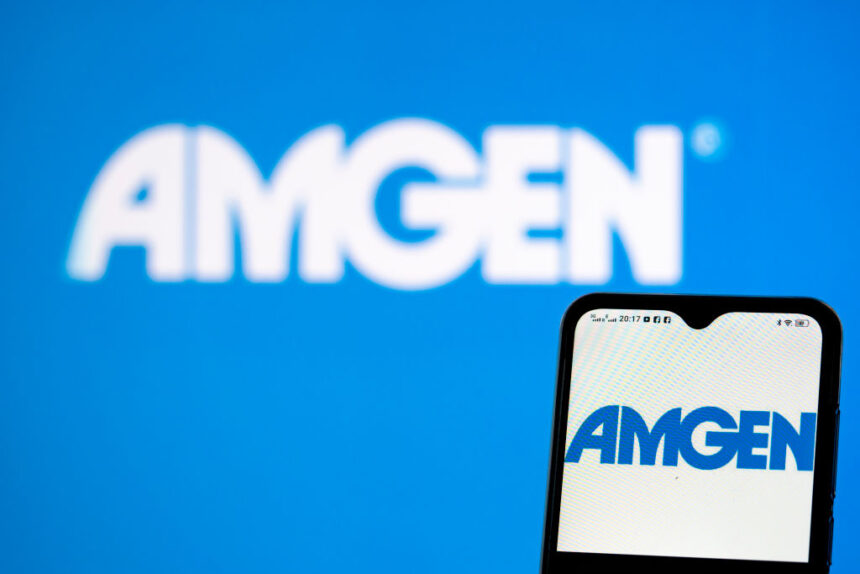The long-awaited closing of Amgen’s nearly $28 billion deal for Horizon Therapeutics boosted the pharma giant’s latest quarterly earnings released Tuesday afternoon.
During Q4 2023, Amgen’s total revenues jumped 20% to $8.2 billion. This was due to 20% growth in product sales, 23% volume growth and nine brands delivered double-digit volume growth.
Between October 6 and December 31, nearly $1 billion in sales were attributable to the Horizon deal.
GAAP earnings per share (EPS) declined 53% to $1.42 during the quarter thanks to acquisition-related expenses and operating expenses from Horizon. Additionally, Amgen’s quarterly operating income fell from $2.2 billion to $1.7 billion.
Outside of Horizon, another announcement from Amgen during Q4 was its decision to expand its pact with Amazon to bolster drug manufacturing.
For the full-year, Amgen’s total revenues increased 7% to $28.2 billion, with product sales growth up 15%, while its EPS inched up 3% to $12.49. Amgen’s full-year operating income dropped from $9.6 billion to $7.9 billion.
Though the company’s net income dropped from $1.6 billion in Q4 2022 to $767 million in Q4 2023, its full-year net income rose to $6.7 billion.
Looking at the year ahead, Amgen projected total revenues between $32.4 billion to $33.8 billion, with an EPS in the range of $8.42 to $9.87.
“2023 was another year of performance and progress for our company,” Amgen CEO Robert A. Bradway said in a statement. “Our marketed products are reaching many more patients around the world, and we anticipate more than a dozen significant pipeline milestones in 2024.”
While Amgen’s earnings were largely positive in nature, the same could not be said for Gilead Sciences.
The company’s quarterly revenues dipped 4% to $7.1 billion due to a 28% decline in sales of Veklury (remdesivir) as well as lower sales for HIV treatments. Excluding Veklury, total product sales were flat year-over-year at $6.3 billion and oncology sales were partially offset by a 2% drop in HIV sales.
Gilead’s diluted EPS also fell to $1.14, though its non-diluted EPS rose slightly to $1.72.
The full-year picture was similar as total revenue decreased 1% to $27.1 billion, product sales were relatively flat at $26.9 billion and non-GAAP diluted EPS decreased to $6.72. However, its diluted EPS increased to $4.50 and when Veklury was not included, total product sales increased 7% to $24.7 billion.
As part of its latest earnings release, Gilead noted that its oral COVID-19 treatment obeldesivir failed a Phase 3 trial.
In addition to obeldesivir failing a Phase 3 trial, Gilead recently announced that its Phase 3 EVOKE-01 of Trodelvy study did not meet its primary endpoint in patients previously treated metastatic non-small cell lung cancer.
“This was another strong year of revenue growth for Gilead’s base business, driven by both HIV and Oncology,” Gilead CEO Daniel O’Day said in a statement. “The strength of the business provides a solid foundation as we enter a new catalyst-rich phase for the company. We are expecting several milestones in 2024, including updates on long-acting HIV prevention and treatment, Cell Therapy and Trodelvy.”
For 2024, Gilead projected total product sales between $27.1 billion and $27.5 billion, total Veklury sales of $1.3 billion and a diluted EPS between $5.15 and $5.55.Gilead released its earnings one week after expanding its three-year-old collaboration with Arcus Biosciences. The pharma company invested an additional $320 million in the biotech and boosted its stake to 33% from 20%.
For a February 2024 article on Gilead Sciences picking up CymaBay Therapeutics in $4.3B liver disease deal, click here.







